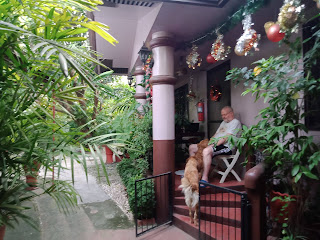Admittedly, this sounds like a very easy request. Already, Thomas Chalmers (1780-1847), a Scottish minister, professor of theology, political economist, and a leader of both the Church of Scotland and of the Free Church of Scotland, treated that topic already with plenty of flowering words.
Why do people like to live like this even knowing they have to leave the platform of their lives one day? Still in mind is the one question of Brother Francis Castro of the Little Brothers of Jesus about the “burning flame inside him that makes him jump out of his bed … and hurry to work…”. The Little Brothers of Jesus congregation was established in the Philippines in 1977. It now has two communities — in the Diocese of Antipolo, northeast of Manila, and in the Quezon City district of the Archdiocese of Manila. Four brothers — three Filipinos and a native Vietnamese with French nationality — live in the communities with a French priest of the order.
Brother Francisco C. Castro, head of the congregation´s Philippine region, reflects on his experiences of quiet witnessing among poor Filipinos as part of spirituality.
In our daily life, we do have plenty of situations where we could show our real calling. Thomas Chalmers describes it as follows, “Good deeds are shining like stars from heaven”!
So, do live for something. For your beloved fellow creatures in your private surroundings as well as at your workplace. And do it for yourself. Do it now!
Kindness, helpfulness, hospitality, obligingness, ready to do favors – and our moment of virtue will not be destroyed by time’s storm. Love and mercifulness from the bottom of our heart is shared with people who will cross our path – and nobody will forget you.
I really wish you time for this. Time for special thoughts and doings. I wish you time, but not for haste, hurry and precipitation, but time for contentment and satisfaction. I wish you time to sort out yourself everyday and every hour, simply to find strength. I wish you, my dear reader, a continued blessed Advent season.
+++
Email: doringklaus@gmail.com or follow me on Facebook, Linkedin or Twitter or visit my www.germanexpatinthephilippines.blogspot.com or www.klausdoringsclassicalmusic.blogspot.com .








